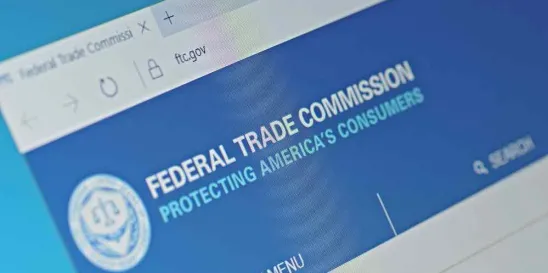On Oct. 11, 2023, the FTC released a proposed rule that would, if finalized in its present form, prohibit “misleading” fees and require more prominent disclosures for so-called “junk fees.” The FTC’s proposed rule, called the “Rule on Unfair and Deceptive Fees,” would broadly prohibit businesses subject to FTC jurisdiction from mispresenting the nature and purpose of any fee. It would also require them to clearly and conspicuously disclose the “total price” for their goods or services, with the “total price” defined to include all fees and charges, other than shipping charges and government-imposed charges, that a consumer must pay for a good or service or for any additional good or service offered to the consumer as part of the same transaction.
The proposed rule aligns with the Biden administration’s focus on “junk fees,” which multiple federal agencies have now addressed via various advisory opinions, guidance documents, and enforcement actions.
In the press release announcing the proposed rule, FTC Chair Lina Khan highlighted the administration’s concerns about “junk fees.” “All too often, Americans are plagued with unexpected and unnecessary fees they can’t escape. These junk fees now cost Americans tens of billions of dollars per year—money that corporations are extracting from working families just because they can,” said Khan. “By hiding the total price, these junk fees make it harder for consumers to shop for the best product or service and punish businesses who are honest upfront. The FTC’s proposed rule to ban junk fees will save people money and time, and make our markets more fair and competitive.”
Background
As the FTC noted in its November 2022 Advance Notice of Proposed Rulemaking (ANPR), Congress and various federal agencies have already taken many steps to address “junk fees,” which the FTC has described as “unnecessary, unavoidable, or surprise charges that inflate costs while adding little to no value” and as “hidden or bogus fees that can harm consumers and undercut honest businesses.”
For instance, the Full Fair Advertising Rule issued by the U.S. Department of Transportation states that any “advertising or solicitation” that “states a price” constitutes an “unfair or deceptive practice . . . unless the price stated is the entire price to be paid.”1 The Telemarketing Sales Rule defines as a deceptive act or practice the misrepresentation of, and failure to, “disclose truthfully, in a clear and conspicuous manner,” the “total costs to purchase, receive, or use, . . . any goods or services that are the subject of [a] sales offer.”2
Against that backdrop, however, the FTC concluded in its ANPR that “junk fees” are “not only widespread but also are growing” and appear “to be prevalent in many sectors of the American economy.” Accordingly, the FTC’s ANPR highlighted the Commission’s belief “that a rule addressing certain types of unfair or deceptive acts or practices involving junk fees could help reduce the level of unlawful activity in this area, serving as a deterrent against these practices because such a trade regulation rule would allow for civil penalties against violators” and “enable the Commission more readily to obtain redress and damages for consumers.”
The Proposed Rule
Picking up the arguments the ANPR laid out, the FTC’s proposed junk-fees rule may be viewed as an effort to end the use of “junk fees.” The proposed rule, however, does not include an outright ban on a specific type of fee, but instead prohibits “hidden fees” and “misleading fees.” Indeed, the FTC chose not to ban “excessive” or “worthless” fees, given that doing so could invite additional costs to determine whether a fee is in fact “excessive” or “worthless.”
Hidden Fees. The provisions regarding hidden fees would establish that it is an unfair and deceptive practice for any business subject to FTC jurisdiction to “offer, display, or advertise an amount a consumer must pay without Clearly and Conspicuously disclosing the Total Price.” They would also require businesses subject to FTC jurisdiction to “display the Total Price more prominently than any other Pricing Information.”
The key term here is “Total Price,” which the proposed rule defines as the “maximum total of all fees or charges a consumer must pay for a good or service and any mandatory Ancillary Good or Service, except that Shipping Charges and Government Charges may be excluded.”
Misleading Fees. The provisions regarding misleading fees would establish that it is an unfair and deceptive practice for any business subject to FTC jurisdiction “to misrepresent the nature and purpose of any amount a consumer must pay, including the refundability of such fees and the identity of any good or service for which fees are charged.” They would also require businesses subject to FTC jurisdiction to clearly and conspicuously disclose “the nature and purpose of any amount a consumer must pay, including the refundability of such fees and the identity of any good or service for which fees are charged, “before the consumer consents to pay.”
Remedies. While unfair or deceptive practices relating to fees are already unlawful under Section 5 of the FTC Act, the FTC’s proposed rule (if finalized) would allow the FTC to seek civil penalties against violators and more readily obtain monetary redress for harmed consumers.
No Preemption of More Protective State Laws. Given the focus on “junk fees” at both the state and federal levels, including California’s SB 478 law, which takes effect in July 2024, the FTC’s proposed rule expressly states that it will only preempt “inconsistent” state laws, and also that a state law is not “inconsistent” with the proposed rule merely because it affords consumers greater protections than those included in the proposed rule.
Takeaways
As noted in our October 2023 GT Alert, in light of the Biden administration’s focus on “junk fees,” businesses should carefully review their fees structures and related disclosures to ensure they do not create unnecessary regulatory risk.
The FTC is soliciting comments on its proposed rule. Comments will be due 60 days after the proposed rule is published in the Federal Register.
Tessa Cierny also contributed to this article.




 />i
/>i

